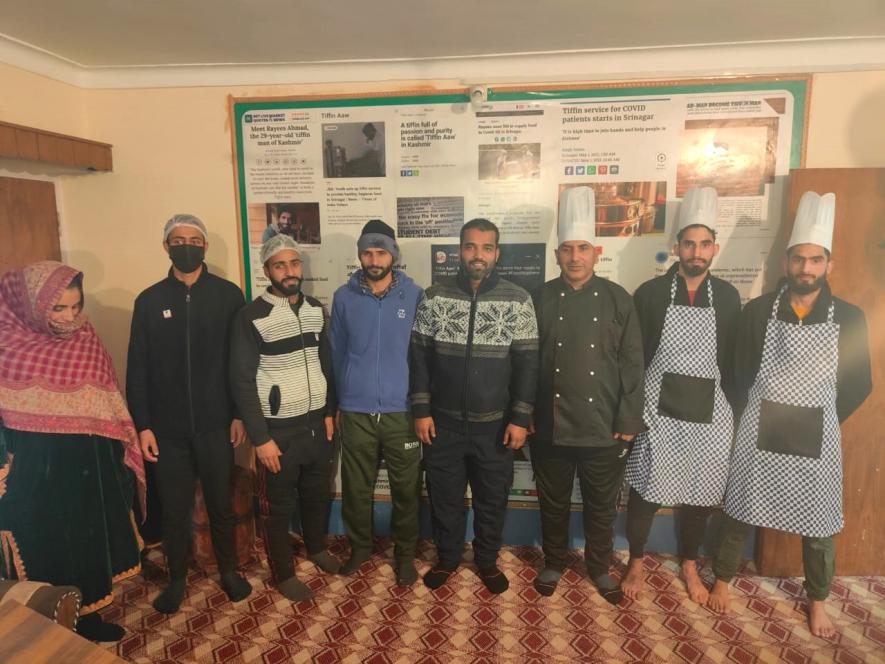Children in Kashmir Can't be Punished for a Situation They Didn't Create: Human Rights Group

Srinagar: A human rights group comprised of prominent civil society members has said that the children in the conflict-ridden Kashmir cannot be punished for a situation they did not create as they are powerless to determine their circumstances in the region.
The group said that the state has an “obligation to extricate children” from vulnerabilities and harm in the wake of violence and guarantee their constitutional rights.
“They are not militants by birth, but may grow into militancy due to the paucity of options available to them. It is imperative that they are no longer forced to bear the brunt of the police and the armed forces or the militants,” the report said.
The Forum for Human Rights in Jammu and Kashmir, in a special report examining issues about child rights in Jammu and Kashmir, has observed that the security personnel have “absolute impunity” when it comes to their role in arbitrary detentions and hence, has recommended several measures to be adopted by the authorities to ensure adherence to the Juvenile Justice Act.
The human rights group also said that there is an “urgent need” to ensure transparency regarding the actual number of children detained by authorities in Jammu and Kashmir.
“There is at present no action taken against errant police officers who do not produce children before JJBs or take them under illegal custody. A disciplinary mechanism must be evolved to ensure that there are no lacunae in reportage or adherence to the Juvenile Justice Act,” the group recommended.
The report also noted that the limited number of observation homes in J&K has an adverse impact on juvenile justice.
“Juveniles suffer as their parents are unable to traverse long distances to visit them. The police are hesitant to remand children to observation homes as the vast distance hinders their investigation. The state government must set up such homes on a priority basis, particularly in South Kashmir, North Kashmir, the Pir Panjal region and the Chenab area,” the report said.
The group has also recommended that the “widely prevalent” police practice of confiscating phones from minors must end, adding that it constitutes a “deliberate intrusion of their privacy.”
The forum said that broadly, it finds that children in J&K fare comparatively respectably in indicia where the community and civil society have a greater role to play – i.e., physical health and nutrition.
“However, there is an alarming deficiency when it comes to the provision of critical resources provided by the state. These include a protective justice delivery system and an environment that promotes mental health,” the report said.
The Forum for Human Rights in Jammu and Kashmir comprises a group of civil society members – who also refer to themselves as concerned citizens, with former bureaucrat Gopal Krishna Pillai and Justice (retd) Ajit Prakash Shah as its conveners. Radha Kumar, a former member of the group of interlocutors for Jammu and Kashmir, Justice Hasnain Masoodi, former judge of the Jammu and Kashmir High Court and Air Vice-Marshal Kapil Kak (retd) are also part of the forum that has come up with several reports on the region since the abrogation of Article 370 and 35A was carried out by the BJP-led government unilaterally on August 5, 2019. The group has since, through its earlier reports, highlighted human rights violations in the aftermath of the abrogation of the law.
The latest report by the forum has noted that children in the valley have suffered due to two prolonged lockdowns, including the first lockdown enforced after August 5, 2019, and the subsequent lockdown in the aftermath of the COVID-19 pandemic.
The pervasive atmosphere of violence, constant military presence, and disturbances created by militant forces have an adverse impact on children, the report pointed out.
“It meddles with the process of regular socialisation with peers, stability in the family, and a consistent school routine, which previously acted as anchors in support of children. It causes mental disorders amongst children, often leading to disturbing consequences,” the report added.
Get the latest reports & analysis with people's perspective on Protests, movements & deep analytical videos, discussions of the current affairs in your Telegram app. Subscribe to NewsClick's Telegram channel & get Real-Time updates on stories, as they get published on our website.
























